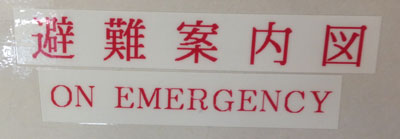 今週のよくある英語の間違い:
今週のよくある英語の間違い:
- on/in a notebook
- on/in a car
- on/in a plane, ship, bicycle
- by my car
- drive/ride/get on
- Machigai Mail: iPod の大文字と小文字
- “L or R” answer (click here)
ポッドキャスト: 新しいウインドウで再生 | ダウンロード
Subscribe: RSS
さぁ、変な英語を直しましょう!-
 今週のよくある英語の間違い:
今週のよくある英語の間違い:
ポッドキャスト: 新しいウインドウで再生 | ダウンロード
Subscribe: RSS

ポッドキャスト: 新しいウインドウで再生 | ダウンロード
Subscribe: RSS
来週の火曜日には必ず返す!
次のクイズは4月15日(水)です。
This site will always respect your personal information.
Entering your e-mail address will allow this form to send a copy of your answer back to you.
このコーナーは毎週水曜日です!
彼はバイクに乗っているけど、 彼女はリムジンに乗っている。
次のクイズは1月7日(水)です。
This site will always respect your personal information.
Entering your e-mail address will allow this form to send a copy of your answer back to you.
このコーナーは毎週水曜日です!
 今週のよくある英語の間違い:
今週のよくある英語の間違い:
ポッドキャスト: 新しいウインドウで再生 | ダウンロード
Subscribe: RSS
 今週のよくある英語の間違い:
今週のよくある英語の間違い:
ポッドキャスト: 新しいウインドウで再生 | ダウンロード
Subscribe: RSS
 今週のよくある英語の間違い:
今週のよくある英語の間違い:
ポッドキャスト: 新しいウインドウで再生 | ダウンロード
Subscribe: RSS
 今週のよくある英語の間違い:
今週のよくある英語の間違い:
ポッドキャスト: 新しいウインドウで再生 | ダウンロード
Subscribe: RSS

X For all sports of Japan.
Tim says:
The use of “of” here sounds a little awkward. I thought about whether we should say “all Japan’s sports” instead, but actually, I think it’s a little strange to use possessive here at all.
I think we would be more likely to use “in”:
O For all the sports in Japan.
Notice that I also added “the”. “All sports” by itself is fine, but we’re not referring to all sports; rather, we’re specifically referring to all the sports in Japan. Therefore, “the” feels necessary, because “all the + noun” sounds more specific than “all + noun”.
Ayumi says:
「日本のすべてのスポーツのために」
日本語の「の」にあたるものをついすべて”of”にしてしまいがちですが、ここでは”in”が適切です。
“of”は基本的に「所属」を表す。 スポーツが日本に所属しているわけではなく、日本の中で行われるスポーツを言っているので、”in”が正解です。
日本語の助詞も難しいですが、英語の前置詞も良い勝負ではないでしょうか?
田中亜由美は「TOEICテスト クロストレーニング PART 1・2」などの本は販売中!ブログはこちら.
周囲にある英語を見て、果たしてそれが正しい英語なのだろうかと感じる英語はありますか?「あの英語は絶対に間違っている」という英語の表記はありますか?看板の写真を撮って、Machigai.comに送りましょう!とんでもない英語だったら、このコーナーで出します!

X On Emergency
Tim says:
Prepositions are difficult. It can often be very hard to guess which one is correct in a certain situation. And if you get it wrong, it can sound very strange to a native speaker, or even have a different meaning.
In this case, it just sounds a little strange: it’s still understandable. To sound natural, use “in”, and also use “emergency” as a countable noun:
O In an Emergency
Ayumi says:
前置詞は本当に難しい。前置詞自身の意味を理解してイメージで覚えることは大切です。
でも、それだけでは対応できないことも・・・
「非常時には」「緊急事態発生時には」という場合には、In an Emergency
ちょうど、in this case「この場合には」のときの “in” と同じで、「~のような状況の中では」というイメージ。in this event / in this situation なども同様に。
でも、同じような意味でも on this occasion というのも・・・
Why “on” here, not “in”?
Help us please, Tim-sensei.
Tim says:
Why?! When I studied German in high school, my teacher said “Don’t ask why. It just is.” Haha.
I’m not sure of the “reason”, if there is one. But perhaps it would help to think of it this way: “situation” and words of a similar meaning are preceded by “in”. So we would say “in an emergency situation” (with “emergency” as an adjective). Perhaps “in an emergency” is an abbreviation for “in an emergency situation”?
In an emergency or other situation, you are surrounded by that situation. You aren’t sitting on top of it. Perhaps that’s why we use “in” for situations.
As for “On this occasion”, I guess we think of “occasion” as a point in time, rather than a situation. So we say “on this occasion” just as we say “on this day.”
田中亜由美は「TOEICテスト クロストレーニング PART 1・2」などの本は販売中!ブログはこちら.
周囲にある英語を見て、果たしてそれが正しい英語なのだろうかと感じる英語はありますか?「あの英語は絶対に間違っている」という英語の表記はありますか?看板の写真を撮って、Machigai.comに送りましょう!とんでもない英語だったら、このコーナーで出します!